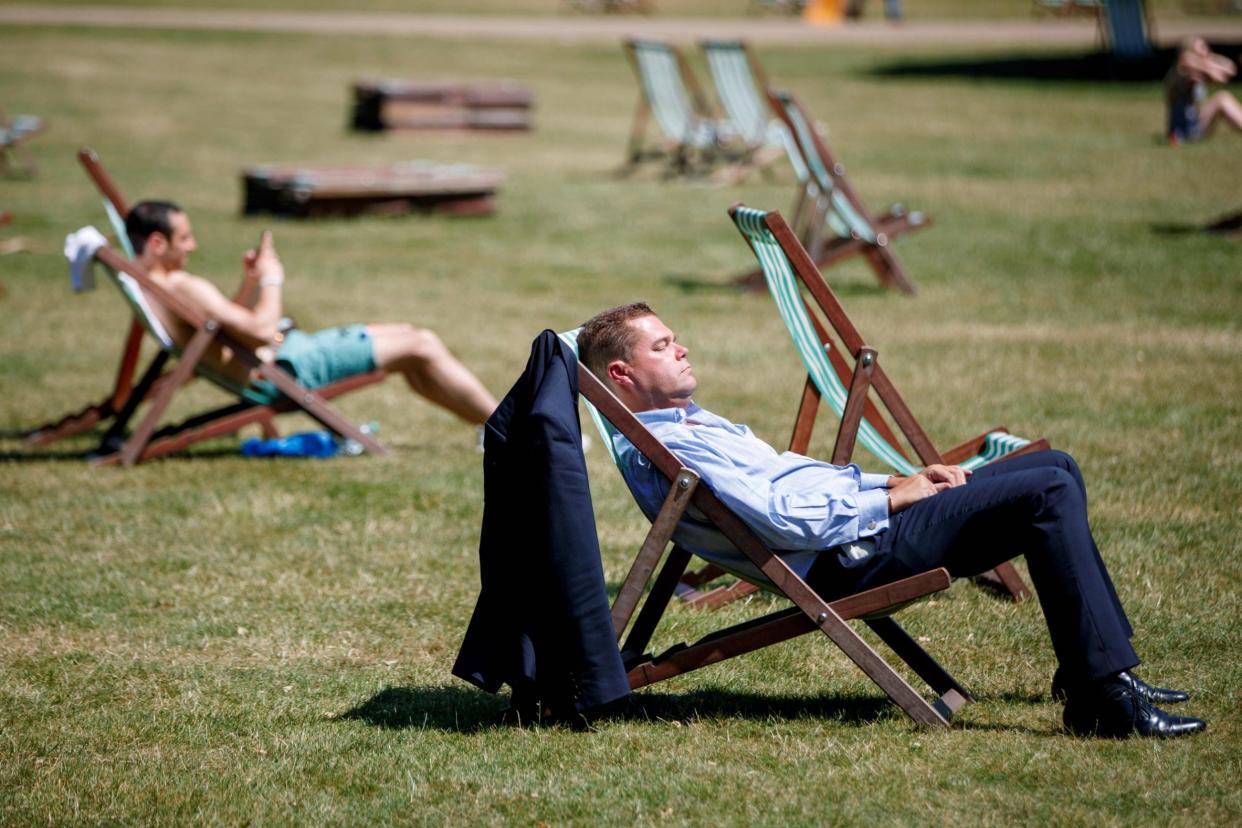Hot weather and UK working rights: Are you legally entitled to time off in a heatwave?

In case you haven't noticed, London is currently basking in a heatwave.
With temperatures soaring beyond 30C this week, it's safe to say that most of us would rather not be stuck in a stuffy office with temperamental air conditioning - but is it possible to be too hot to work?
Rules around temperatures for indoor workplaces are covered by the Workplace (Health, Safety and Welfare) Regulations 1992.
Here's what you need to know about your employee rights when it gets too hot.
Is there a law that says it’s too hot to work?
The regulations state that employers must legally provide employees with a “reasonable” temperature in the workplace.
While there is a minimum working temperature there is no statutory upper limit.
What is the minimum workplace temperature?
The Approved Code of Practice says that the minimum temperature in a workplace should be 16C.
If the work is labour intensive then the minimum temperature should be 13C.
What are the rules for higher temperatures?
Due to the high temperatures found in certain work environments such as glass works or foundries, no meaningful figure has been determined for when it is too hot to work.
The Health and Safety Executive said: “In such environments it is still possible to work safely provided appropriate controls are present.”
What regulations are there to protect workers during hot spells?
The Workplace Regulations, the Management of Health and Safety at Work Regulations 1999 says that employers must make a “suitable assessment” of the health and safety risks posed to employees in their working environment.
Employers must take action “where necessary and where reasonably practicable".
Are there any plans to introduce a maximum working temperature?
Two MPs are working towards introducing a maximum workplace temperature which would be 30C in an office and 27C if the work is exceedingly strenuous.
Labour’s Ian Mearns and SDLP’s Mark Durkan have said that employers should be legally forced to provide water, breaks and air-conditioning to combat soaring temperatures at work.
How likely is it that they will succeed?
Mr Mearns has tabled an Early Day Motion in the House of Commons. An EDM is a motion submitted for debate in the House of Commons,
It states: “That this House notes that workers in the UK lack adequate legal safeguards from working in uncomfortably high temperatures, owing to the lack of a statutory maximum temperature at which employers would have to introduce control measures, such as breaks, access to water or air conditioning."
It also notes: "(This House) calls on the Government to adopt the recommendations of the TUC and joint union Cool It campaign to introduce into law a maximum working temperature of 30C or 27C for those doing strenuous work, beyond which employers would have a statutory duty to introduce effective control measures."
Unfortunately, very few EDMs are ever actually debated.

 Yahoo News
Yahoo News 
